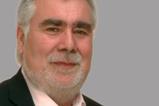- Health secretary Jeremy Hunt apologised to the families of those who died due to prescribed painkillers at Gosport Memorial Hospital
- Mr Hunt said the Gosport Independent Panel’s report was “truly shocking” and revealed a “catalogue of failings”
- He said any future criminal or health system investigations should be independent of organisations with vested interests
Health and social care secretary Jeremy Hunt has told MPs the government will “ask searching questions” over whether safety and regulatory processes are right following the Gosport Memorial Hospital Inquiry.
Mr Hunt said the government would respond fully to the inquiry, published today, in the autumn but told MPs any further criminal or health system investigations over the deaths of more than 450 patients, must be independent.
The Gosport Independent Panel’s report found 456 patients died as a result of opioids being administered without medical justification, which Mr Hunt said was “truly shocking.”
The secretary of state told the House of Commons changes had been made in the NHS since the Mid Staffs and Morecambe Bay scandals which included reforms to the Care Quality Commission, the duty of candour, the creation of Healthcare Safety Investigation Branch and a new service of medical examiners but he added: “Today’s report means we still need to ask searching questions over whether we have got everythingh right.”
Mr Hunt said the government will publish a full response in the autumn, but stressed there were a number of important questions that needed to be answered, including:
- Why was a report completed in 2003, which contained potentially “critically important lessons”, not published for 10 years?
- Why did the General Medical Council and Nursing and Midwifery Council take so long to act?
- Why did supervising consultants or nurses not step in to stop incorrect dosages being given to patients?
- Why did the Crown Prosecution Service not consider corporate liability and safety offence charges?
- Was there a desire to blame one doctor for the issues rather than examine systematic failings across the system?
Mr Hunt said: “Was there an institutional desire to blame the issues on one rogue doctor rather than examine systematic failings that prevented issues being picked up and dealt with quickly, driven as this report suggests it may have been by a desire to protect organisational reputations.”
Mr Hunt said the £14m independent inquiry was only commissioned after former care minister Norman Lamb asked him to overturn official civil service advice.
“As care minister he [Mr Lamb] came and asked me to overturn the official advice he had received that there should not be an independent panel. I accepted this advice and can say today without his campaigning both in and out of office, justice would have been denied to hundreds of families.”
The health secretary said police, CPS and health authorities will now examine the new report before deciding what steps to take.
But he warned any new investigation must be transparent and free from “vested interests”.
Mr Hunt added: “The police, working with the CPS and consultants will now carefully examine the new material in the report before determining their next steps and in particular whether criminal charges should now be brought.
“In my own mind I am clear that any further action by the relevant criminal justice and health authorities must be thorough, transparent and independent of any organisation that may have an institutional vested interest in the outcome.
“Hampshire Constabulary will want to consider carefully whether further police investigation should be undertaken by another police force.”
Mr Hunt also condemned the culture which led to the concerns of whistleblowers and families being ignored and a “catalogue of failings” across the NHS, police force, coroners, GMC, NMC and the Department of Health and Social Care.
He added: “Had the establishment listened when junior NHS staff spoke out, had the establishment listened when ordinary families raised concerns instead of treating them as troublemakers, many of those deaths would not have happened.”
Source
House of Commons statement
Source Date
June 2018































1 Readers' comment